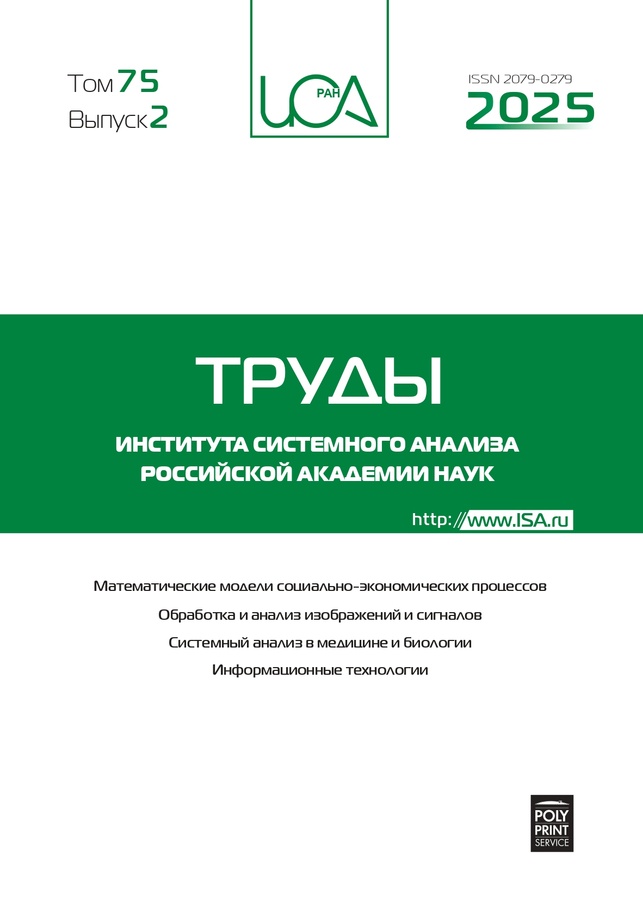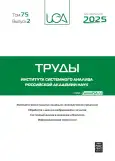Proceeding of the Institute for Systems Analysis of the Russian Academy of Science
Scientific journal "Trudy Instituta sistemnogo analiza Rossiyskoy akademii nauk (ISA RAN)"publishes materials on a wide range of fundamental problems of developing sistems analysis methodology and its applying to solving various problems in the field of science and practice. The journal is destinet for scientists and researches working within the framework of these problems, as well as for politicians, employees of state and minicipal depaptments, specialists of enterprises and representatives of social organizations. The rules for articles submission to the journal, as well as for their rewief are given at the journal" s site
The journal is registered in Federal service of observing and controlling legislation in the area of mass media and protection of cultural heritage in 20 of May 2016. Digital certificate - PI № FS77-65718.
Journal Subscription Index in the Ural-Press e-catalog (http://ural-press.ru) is 36089.
The journal is supported by the Department of Information Technologies and Computing Systems of the Russian Academy of Sciences.
The journal is included in the list of leading peer-reviewed scientific journals recommended by the Higher Attestation Commission.
Current Issue
Vol 75, No 2 (2025)
Mathematical Models of Socio-Economic Processes
Valuation of machines with a randomly decreasing service life
Abstract
 3-12
3-12


State Infrastructure Projects as an Object of Situational Management
Abstract
 13-21
13-21


Digital transformation of the healthcare system
Abstract
 22-27
22-27


On interrelation of organizational approaches to strategic analysis in the context of natural monopoly issues
Abstract
 28-36
28-36


Image and Signal Processing
Classification of a scanned document type using the dynamic time warping method
Abstract
 37-48
37-48


System analysis in medicine and biology
The use of correlation adaptometry techniques to evaluate the effectiveness of the treatment
Abstract
 49-55
49-55


A systems analysis of the significance of factors influencing the epidemiological situation of tuberculosis in Russia
Abstract
 56-65
56-65


Information Technologies
Increasing the speed of DBMS operations using hardware FPGA accelerators
Abstract
 66-74
66-74


Development of an SVM model for predictive maintenance of metal-cutting equipment
Abstract
 75-81
75-81












